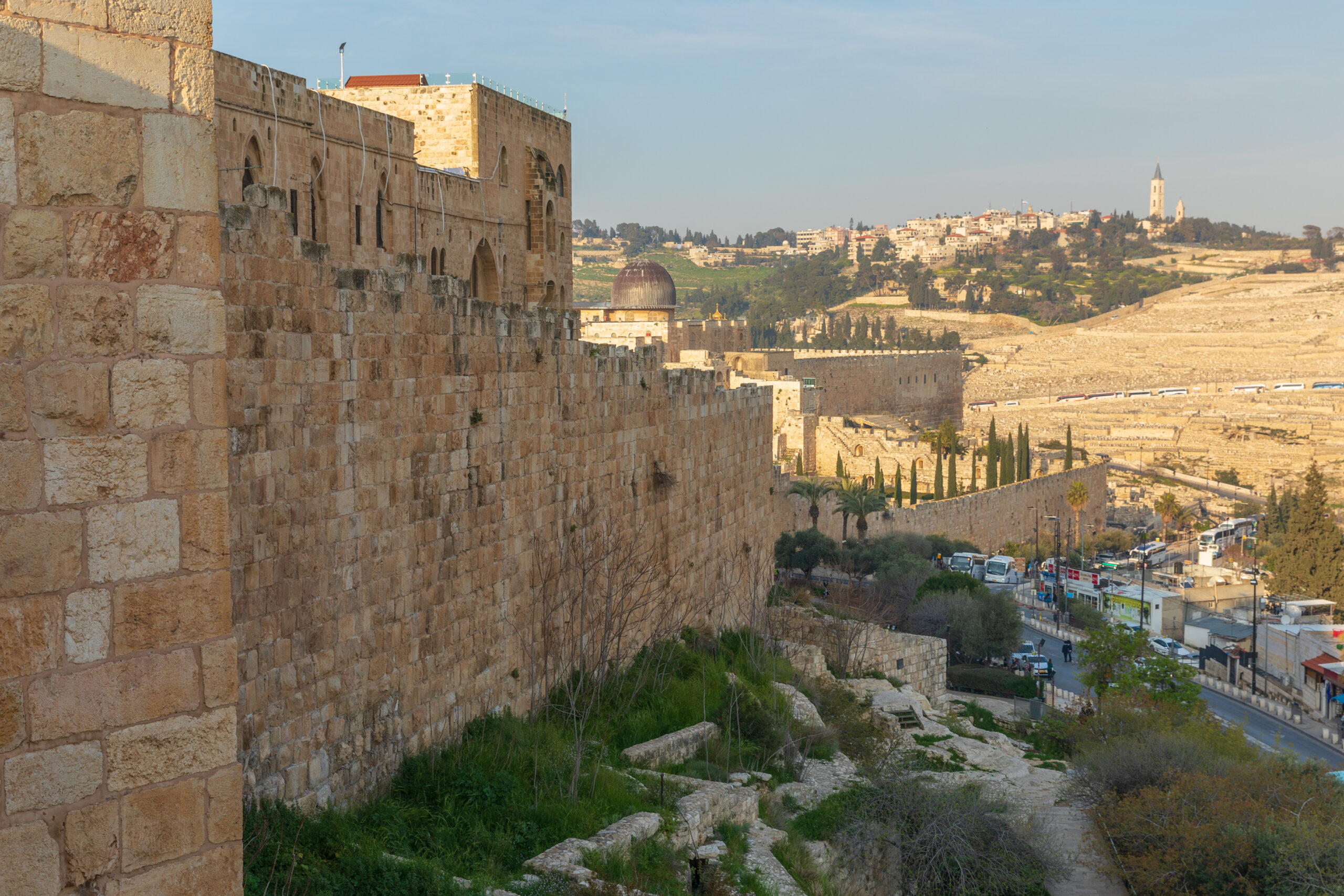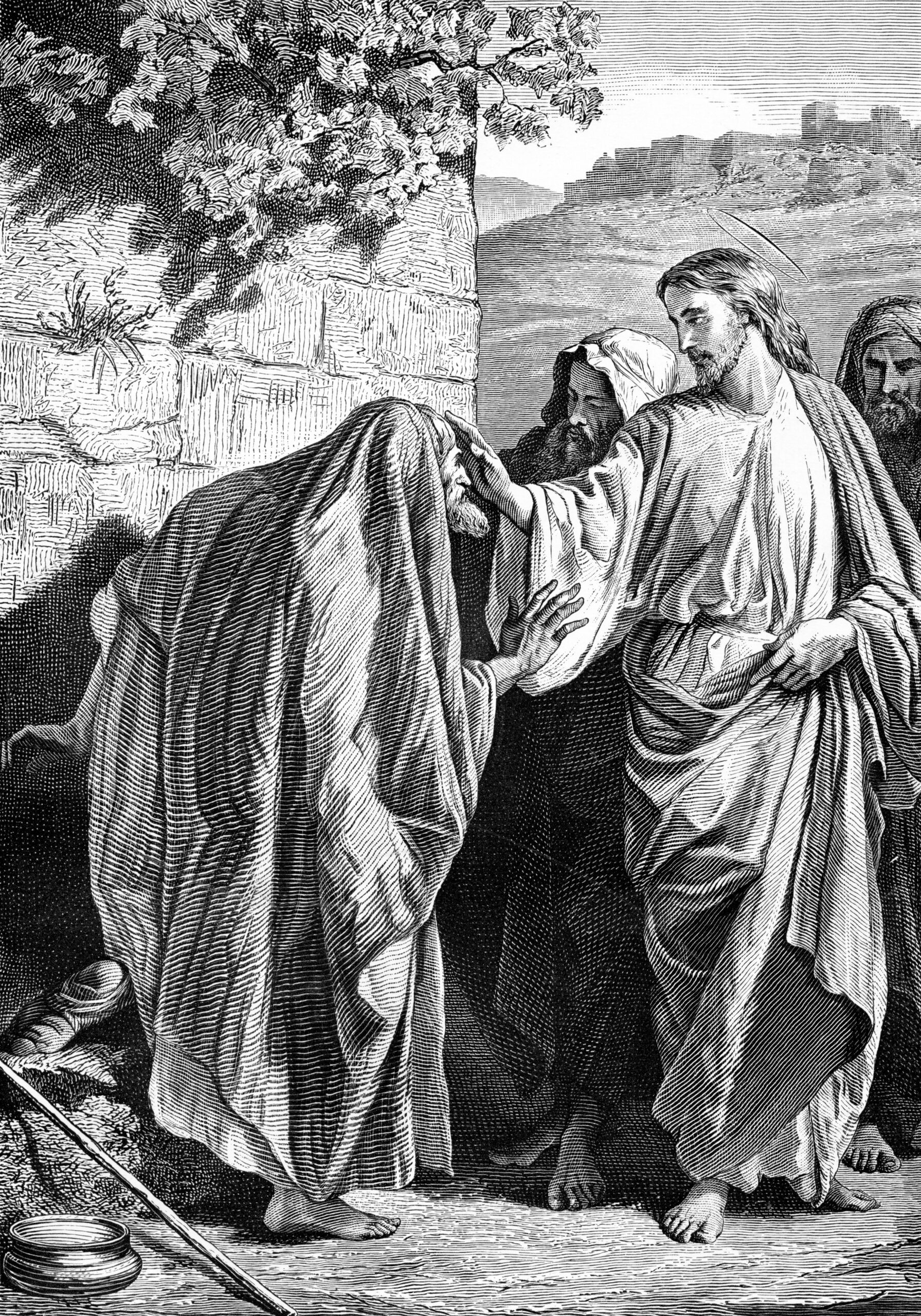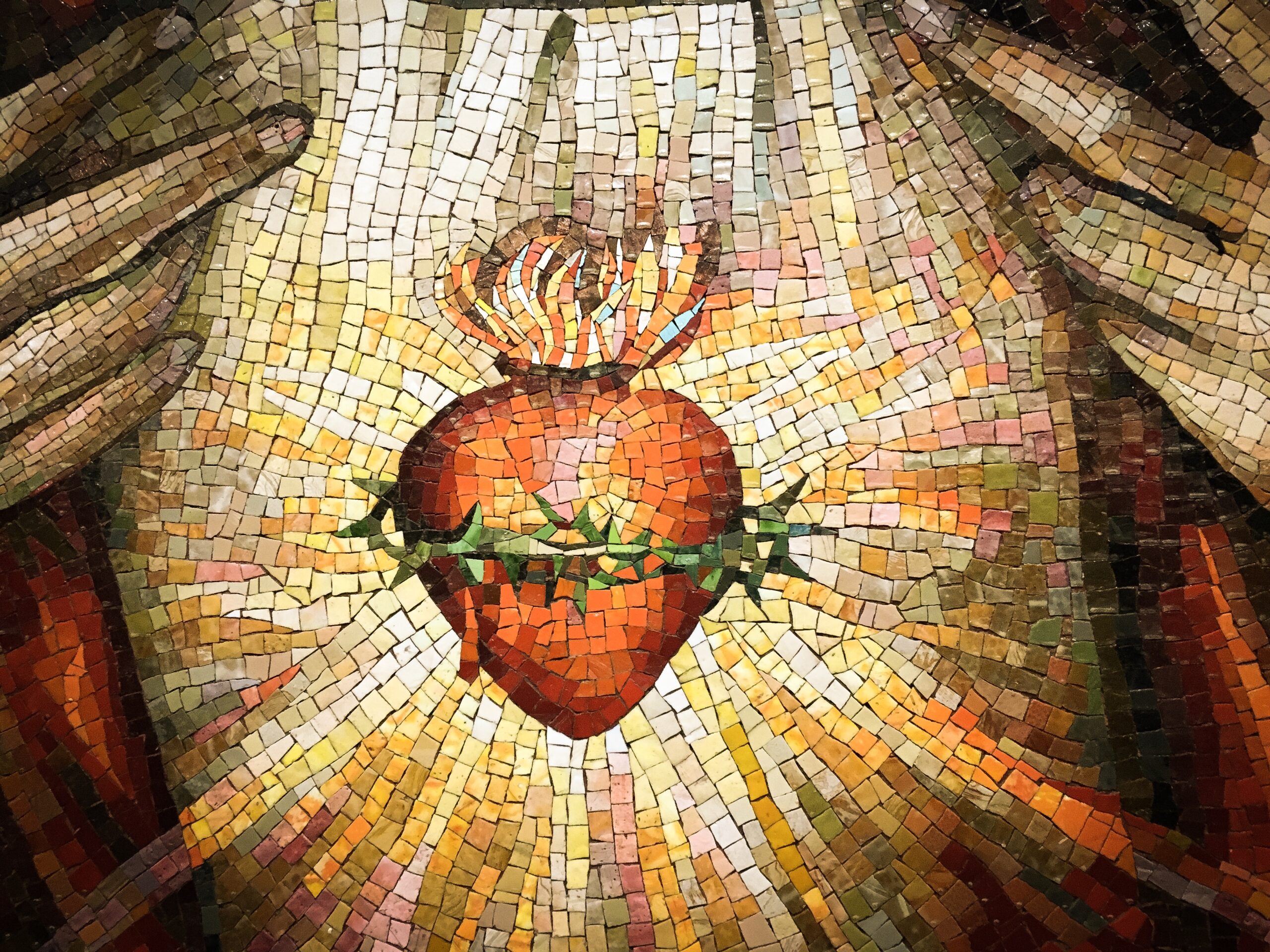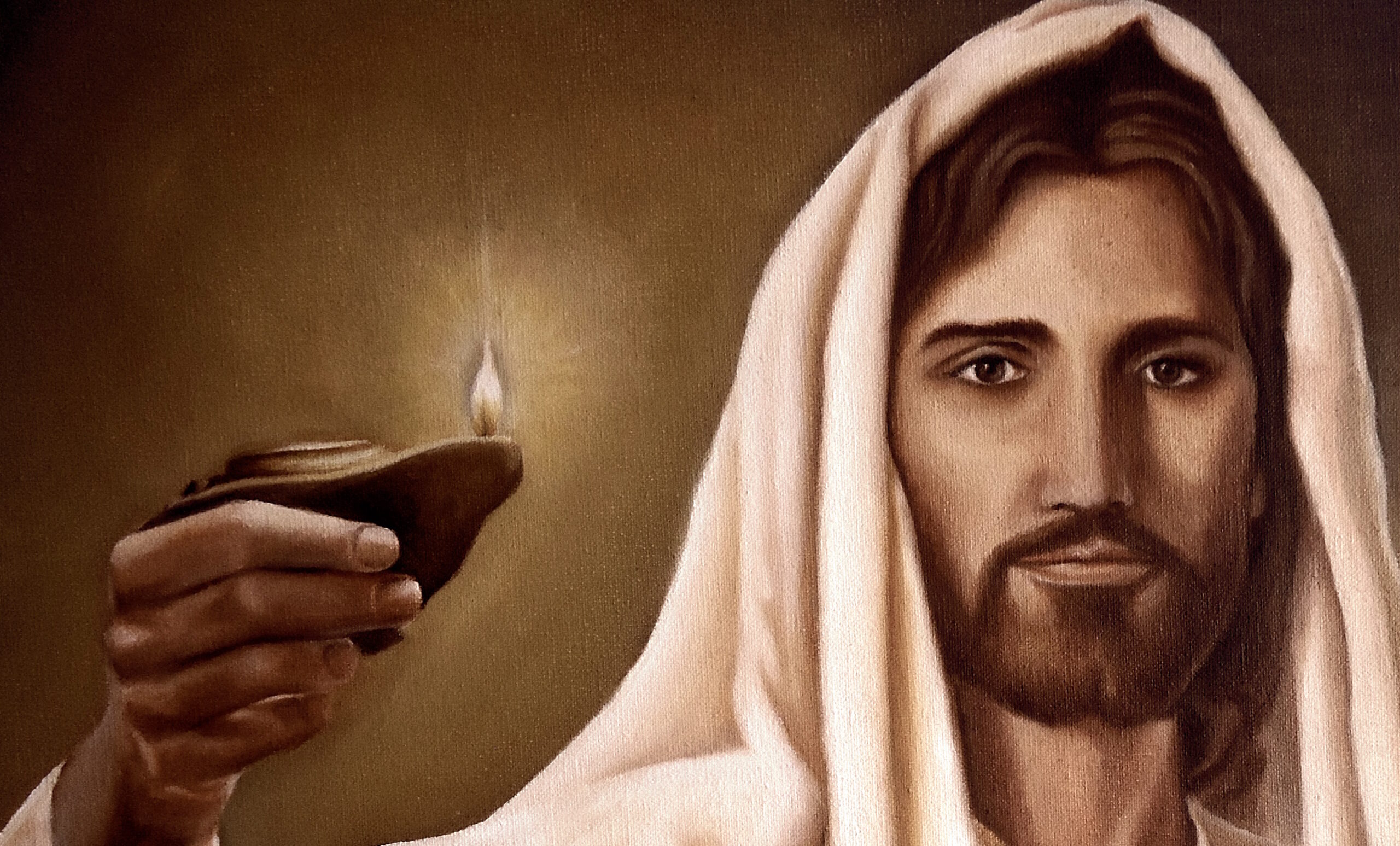Finally, grow strong in the Lord, with the strength of his power.
According to tradition, the Apostle Paul wrote his letter to the Ephesians while he was in prison in Rome (around AD 62). While in Rome, I was blessed to visit the restored “house” where Paul was held under house arrest. Thinking of the great Apostle confined in those rooms, I can imagine this giant of a man whose missionary activity had touched the entire then-known world reflecting upon the purpose of life and the larger mission of Christianity in the world. I resonate, at least in a small way, in a similar time in my life in the weeks and months after my stroke when I had to come to grips that without God’s permission I could do nothing: I couldn’t stand, I couldn’t speak, I couldn’t walk. As super as I had thought I was, busy, effective, bursting with ideas and energy, in reality I learned I was totally dependent on God.
People who are blessed with the ability to get things done, to envision the future, to organize and administrate—all of which were gifts Paul himself had received and which sustained him in his years of labor for and in Christ—know intimately that lightning-quick inner movement that constructs a roadmap for arriving at solutions and resolutions to issues when they arise. I like to think that Paul, in this reading, is showing us what he had gradually learned about living “in the Lord,” a truth that makes all activity fruitful.
He is telling the Ephesians and us, “Be empowered through your union with Christ, draw from Christ—and not yourself—the boundless strength he provides. For our strength as Christians cannot subsist outside of Christ. In Philippians he had written: “I can do all things through Christ who strengthens me” (cf. 4:13)
This is important to note because the armor which is described in the following verses as our proper attire is therefore of divine workmanship. The armor of God is given to us. It isn’t something we take up by creating it or choosing it ourselves. A soldier wears armor to protect and defend himself, whereas the armor that is described by Paul here, which God gives to us, consists of virtues which are useful for 1) defending us against the attack of the enemy, and 2) giving us strength in battle against the skillful, experienced, and malicious enemies which are the devil and his angels. A soldier’s armor protects him, but is powerless to strengthen him on the battlefield.
Therefore, put on the armor which God himself provides you: truth, righteousness and integrity. Run with stability and promptness to announce the Gospel of peace. Cover yourself with faith and wield the sword of the Spirit which is the Word of God. Be continually filled with the Holy Spirit. Don’t fall into the trap of assuming you can stand against the wiles of the evil one with your natural strength.
“In all your prayer and entreaty keep praying in the Spirit on every possible occasion….”
No matter how virtuous we think we have become, how zealous we as missionaries, ministers, and Christians may be, how fantastic our projects and successful our plans, Paul is calling us through prayer to jettison self-reliance and to rely wholly on the Spirit’s enablement. Prayer is the very air we breathe. Prayer keeps us spiritually alive. Prayer makes us one with Christ.
What the Church and the world need today are people mighty in this battle of spiritual warfare, people who are filled with the Spirit and who run to do the Spirit’s bidding. Without prayer, to return to the imagery of the soldier’s armor, we shall be defeated in battle. And if we look to God in prayer, we shall triumph in the battle against every evil.
 Kathryn James Hermes, FSP, is the author of the newly released title: Reclaim Regret: How God Heals Life’s Disappointments, by Pauline Books and Media. An author and spiritual mentor, she offers spiritual accompaniment for the contemporary Christian’s journey towards spiritual growth and inner healing. She is the director of My Sisters, where people can find spiritual accompaniment from the Daughters of St. Paul on their journey. Website: www.touchingthesunrise.com Public Facebook Group: https://www.facebook.com/groups/srkathrynhermes/ For monthly spiritual journaling guides, weekly podcasts and over 50 conferences and retreat programs join my Patreon community: https://www.patreon.com/srkathryn.
Kathryn James Hermes, FSP, is the author of the newly released title: Reclaim Regret: How God Heals Life’s Disappointments, by Pauline Books and Media. An author and spiritual mentor, she offers spiritual accompaniment for the contemporary Christian’s journey towards spiritual growth and inner healing. She is the director of My Sisters, where people can find spiritual accompaniment from the Daughters of St. Paul on their journey. Website: www.touchingthesunrise.com Public Facebook Group: https://www.facebook.com/groups/srkathrynhermes/ For monthly spiritual journaling guides, weekly podcasts and over 50 conferences and retreat programs join my Patreon community: https://www.patreon.com/srkathryn.


 Nikol M. Jones is in her final year at Franciscan University’s Master’s in Theology and Christian Ministry program where it has been her joy to learn how to integrate the tools of modern biblical scholarship with the principles of biblical interpretation set forth by the Catholic Church in the service of the Word of God. She also has a passion for creating artwork and children’s books that honor the life and teachings of Christ. When she’s not studying or painting, she utilizes her writing and organizational skills as an administrative assistant. You can connect with her on LinkedIn at
Nikol M. Jones is in her final year at Franciscan University’s Master’s in Theology and Christian Ministry program where it has been her joy to learn how to integrate the tools of modern biblical scholarship with the principles of biblical interpretation set forth by the Catholic Church in the service of the Word of God. She also has a passion for creating artwork and children’s books that honor the life and teachings of Christ. When she’s not studying or painting, she utilizes her writing and organizational skills as an administrative assistant. You can connect with her on LinkedIn at 
 Erin Madden is a Cleveland native and graduate of the Franciscan University of Steubenville. Following graduation, she began volunteering in youth ministry at her home parish of Holy Family Church. Her first “big girl” job was in collegiate sports information where, after a busy two years in the profession on top of serving the youth, she took a leap of faith and followed the Lord’s call to full-time youth ministry at St. Peter Church. She still hopes to use her communication arts degree as a freelance writer and statistician, though. You can catch her on the Clarence & Peter Podcast on YouTube as well as follow her on Twitter @erinmadden2016.
Erin Madden is a Cleveland native and graduate of the Franciscan University of Steubenville. Following graduation, she began volunteering in youth ministry at her home parish of Holy Family Church. Her first “big girl” job was in collegiate sports information where, after a busy two years in the profession on top of serving the youth, she took a leap of faith and followed the Lord’s call to full-time youth ministry at St. Peter Church. She still hopes to use her communication arts degree as a freelance writer and statistician, though. You can catch her on the Clarence & Peter Podcast on YouTube as well as follow her on Twitter @erinmadden2016.
 Dakota currently lives in Denver, CO and teaches English Language Development and Spanish to high schoolers. She is married to the love of her life, Ralph. In her spare time, she reads, goes to breweries, and watches baseball. Dakota’s favorite saints are St. John Paul II (how could it not be?) and St. José Luis Sánchez del Río. She is passionate about her faith and considers herself blessed at any opportunity to share that faith with others. Check out more of her writing at
Dakota currently lives in Denver, CO and teaches English Language Development and Spanish to high schoolers. She is married to the love of her life, Ralph. In her spare time, she reads, goes to breweries, and watches baseball. Dakota’s favorite saints are St. John Paul II (how could it not be?) and St. José Luis Sánchez del Río. She is passionate about her faith and considers herself blessed at any opportunity to share that faith with others. Check out more of her writing at 
 David Dashiell is the Associate Director of Liturgy for a group of parishes in Pittsburgh, Pennsylvania. When he is not spending time with his wife and infant daughter, he is writing on philosophy and theology for various online publications. You can find some of these in Crisis Magazine and the Imaginative Conservative, and you can contact him at
David Dashiell is the Associate Director of Liturgy for a group of parishes in Pittsburgh, Pennsylvania. When he is not spending time with his wife and infant daughter, he is writing on philosophy and theology for various online publications. You can find some of these in Crisis Magazine and the Imaginative Conservative, and you can contact him at 
 Shannon Whitmore currently lives in northwestern Virginia with her husband, Andrew, and their two children, John and Felicity. When she is not caring for her children, Shannon enjoys writing for her blog, Love in the Little Things, reading fiction, and freelance writing. She has experience serving in the areas of youth ministry, religious education, sacramental preparation, and marriage enrichment.
Shannon Whitmore currently lives in northwestern Virginia with her husband, Andrew, and their two children, John and Felicity. When she is not caring for her children, Shannon enjoys writing for her blog, Love in the Little Things, reading fiction, and freelance writing. She has experience serving in the areas of youth ministry, religious education, sacramental preparation, and marriage enrichment.
 Kathryn Mulderink, MA, is married to Robert, Station Manager for Holy Family Radio. Together they have seven children (including newly ordained Father Rob and seminarian Luke ;-), and two grandchildren. She is a Secular Discalced Carmelite and has published five books and many articles. Over the last 25 years, she has worked as a teacher, headmistress, catechist, Pastoral Associate, and DRE. Currently, she serves the Church as a writer and voice talent for Catholic Radio, by publishing and speaking, and by collaborating with the diocesan Office of Catechesis, various parishes, and other ministries to lead others to encounter Christ and engage their faith. Her website is
Kathryn Mulderink, MA, is married to Robert, Station Manager for Holy Family Radio. Together they have seven children (including newly ordained Father Rob and seminarian Luke ;-), and two grandchildren. She is a Secular Discalced Carmelite and has published five books and many articles. Over the last 25 years, she has worked as a teacher, headmistress, catechist, Pastoral Associate, and DRE. Currently, she serves the Church as a writer and voice talent for Catholic Radio, by publishing and speaking, and by collaborating with the diocesan Office of Catechesis, various parishes, and other ministries to lead others to encounter Christ and engage their faith. Her website is 
 Patrick produces YouTube content for young Catholics on
Patrick produces YouTube content for young Catholics on 
 Deacon Dan Schneider is a retired general manager of industrial distributors. He and his wife Vicki recently celebrated their 50th wedding anniversary. They are the parents of eight children and twenty-nine grandchildren. He has a degree in Family Life Education from Spring Arbor University. He was ordained a Permanent Deacon in 2002. He has a passion for working with engaged and married couples and his main ministry has been preparing couples for marriage.
Deacon Dan Schneider is a retired general manager of industrial distributors. He and his wife Vicki recently celebrated their 50th wedding anniversary. They are the parents of eight children and twenty-nine grandchildren. He has a degree in Family Life Education from Spring Arbor University. He was ordained a Permanent Deacon in 2002. He has a passion for working with engaged and married couples and his main ministry has been preparing couples for marriage.